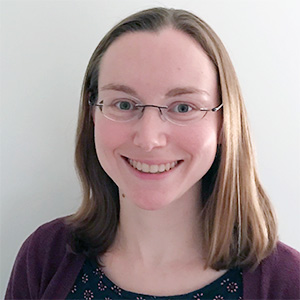ASBMB names 2025 JBC/Tabor Award winners
The American Society for Biochemistry and Molecular Biology has named the 2025 winners of the Journal of Biological Chemistry/Herbert Tabor Early Career Investigator Awards. These awards honor the late Herbert Tabor’s legacy in science and decades-long service to JBC in multiple editorial roles, including his leadership as editor-in-chief from 1971 to 2010.
Paul Shapiro, a professor of pharmaceutical sciences at the University of Maryland School of Pharmacy and JBC associate editor, leads the committee that selects the winners. The awardees are recognized for being first authors on exceptional JBC research papers, published the previous year.
“We are thrilled with this year’s selection of award winners,” Shapiro said. “These early career scientists represent the next generation of researchers who will continue to make outstanding contributions to scientific knowledge in their respective fields.”
Read about the award winners and their research topics below.
En Ze Linda Zhong–Johnson
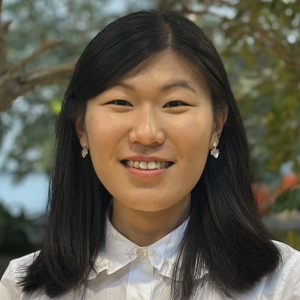
En Ze Linda Zhong–Johnson is an enzyme engineering scientist at ZymoChem, a biotechnology company that focuses on renewable energy, and recently obtained her Ph.D. from the Massachusetts Institute of Technology. She was co-supervised by Anthony J. Sinskey in the department of biology and Christopher A. Voigt in the department of biological engineering. At MIT, she studied the biochemistry of poly(ethylene terephthalate)-degrading enzymes. She was recognized for the paper, “Analysis of Poly(ethylene terephthalate) degradation kinetics of evolved IsPETase variants using a surface crowding model.” Zhong–Johnson and her colleagues identified enzyme mutations that impacted biodegradation rates on the solid plastic surface and developed a biochemical model to study the nonstandard kinetics of these enzymes in response to concentration. Kinetic analysis using the model suggested new enzyme properties that could be used to accelerate biodegradation of solid waste.
Gabriel Bedard

Gabriel Bedard is pursuing his M.D./Ph.D. at the Albert Einstein College of Medicine. He conducts research with Vern L. Schramm, a professor of biochemistry. Bedard earned his B.S. in chemistry from State University of New York at Binghamton in 2017 and defended his Ph.D. thesis in 2024. He is recognized for the article, “Combined inhibition of MTAP and MAT2a mimics synthetic lethality in tumor models via PRMT5 inhibition.” Bedard and colleagues showed that combining 5′-methylthioadenosine phosphorylase, or MTAP, and methionine adenosyltransferase 2 alpha, or MTAP2a reduces tumor burden in mouse models of colorectal carcinomas. These findings suggest that this combination therapy could expand current MAT2a inhibitor use to MTAP-expressing cancers and further establish MTAP as a viable cancer target.
Hongting Zhao and Yao Lu
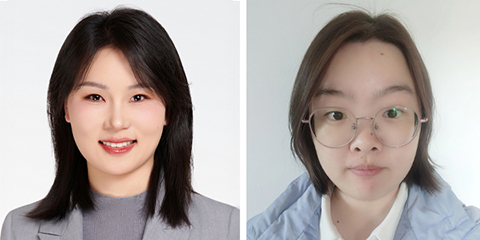
Hongting Zhao is a research assistant professor at the Affiliated Hospital of Nanjing University of Chinese Medicine, and Yao Lu is a Ph.D. candidate at Nanjing University. They conducted their research under the mentorship of Kuanyu Li of Nanjing University of China. They were recognized for the paper, “NCOA4 requires a [3Fe-4S] to sense and maintain the iron homeostasis.” In this study, Zhao, Lu and their colleagues identified the iron-sulfur cluster 3Fe-4S as a cofactor for NCOA4, a protein crucial for regulating cellular iron homeostasis. This cluster determines the fate of NCOA4 in favoring iron storage via ferritin or iron release via ferritinophagy, a process by which cells degrade and recycle ferritin.
Natalie Stewart
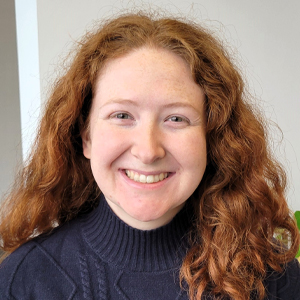
Natalie Stewart is a Ph.D. candidate in Simon Wisnovsky's lab at the University of British Columbia. Her research focuses on the role of glycosylation in T-cell function, with a particular interest in Siglec-7, a glycan-binding immune receptor emerging as a promising target in cancer immunotherapy. She was recognized for the paper, "The glycoimmune checkpoint receptor Siglec-7 interacts with T-cell ligands and regulates T-cell activation." In this study, she and colleagues characterized Siglec-7 ligand expression on peripheral immune cells and identified CD43 as its primary ligand on T cells. Their work revealed that blocking Siglec-7 enhances the T cell and dendritic cell activation, which could lead to immunotherapies targeting Siglec receptors.
Armin Adly
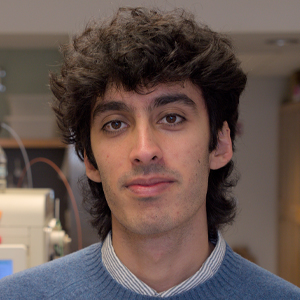
Armin Adly is a first-year Ph.D. student in the ecology and evolution program at the University of Chicago, where he studies evolutionary biochemistry in Joe Thornton’s lab. Previously, he was a research technician in David Morgan’s lab at the University of California San Francisco, where he studied the SARS-CoV-2 nucleocapsid, or N, protein, exploring biochemical mechanisms of genome packaging and its regulation by phosphorylation. He was recognized for the paper, “Assembly of SARS-CoV-2 ribonucleosomes by truncated N* variant of the nucleocapsid protein.” His group found that a truncated N protein variant, or N*, present in viruses from the B.1.1 lineage, assembles viral ribonucleoprotein complexes despite lacking the N-terminal RNA-binding domain and phosphorylation sites. Their findings highlight phosphorylation as a key regulator of N protein function and suggest that N protein truncations may shape viral evolution by enhancing viral assembly.
Enjoy reading ASBMB Today?
Become a member to receive the print edition four times a year and the digital edition monthly.
Learn moreGet the latest from ASBMB Today
Enter your email address, and we’ll send you a weekly email with recent articles, interviews and more.
Latest in People
People highlights or most popular articles

Simcox wins SACNAS mentorship award
She was recognized for her sustained excellence in mentorship and was honored at SACNAS’ 2025 National Conference.

From humble beginnings to unlocking lysosomal secrets
Monther Abu–Remaileh will receive the ASBMB’s 2026 Walter A. Shaw Young Investigator Award in Lipid Research at the ASBMB Annual Meeting, March 7-10 in Washington, D.C.

Chemistry meets biology to thwart parasites
Margaret Phillips will receive the Alice and C. C. Wang Award in Molecular Parasitology at the ASBMB Annual Meeting, March 7-10 in Washington, D.C.

ASBMB announces 2026 JBC/Tabor awardees
The seven awardees are first authors of outstanding papers published in 2025 in the Journal of Biological Chemistry.

Decoding how bacteria flip host’s molecular switches
Kim Orth will receive the Earl and Thressa Stadtman Distinguished Scientists Award at the ASBMB Annual Meeting, March 7–10, just outside of Washington, D.C.

Thiam elected to EMBO
He was recognized during the EMBO Members’ Meeting in Heidelberg, Germany, in October.

